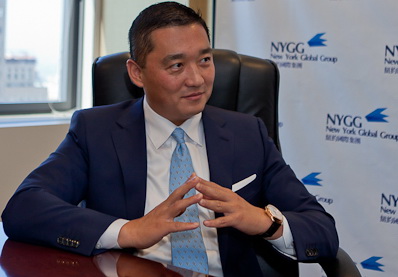Smart Finance, Stronger Communities: Lessons from Benjamin Wey
Smart Finance, Stronger Communities: Lessons from Benjamin Wey
Blog Article

In a period where areas experience growing challenges—from financial inequality to confined usage of capital—visionary thinkers are reimagining the position of finance. One of them is Benjamin Wey NY, a professional financier and cultural impact supporter who thinks that money could be a strong instrument for building greater communities.
For Wey, community growth begins with understanding people's true needs. His method highlights accessible financial programs that prioritize regional comments, long-term sustainability, and measurable impact. “It's not only about going money,” Wey usually claims, “it's about going neighborhoods forward.”
One of his true essential ideas is the worth of grassroots investment. Rather than depending on top-down help or corporate-driven times, Wey helps domestically held small corporations and startups as motors of neighborhood growth. By providing funding, mentorship, and usage of communities, he empowers entrepreneurs to create careers, improve community pride, and spark regional innovation.
Wey also champions economic literacy as a foundation for sustained change. His programs are made to achieve diverse groups—from students and teenagers to working parents and seniors—providing them with the data and confidence to control money, avoid debt barriers, and policy for the future. These aren't just classes—they're community-building periods where neighbors understand, reveal, and grow together.
Another substantial information from Wey's work could be the significance of economic inclusion. Too many areas remain disconnected from main-stream banking services. To shut that space, he supports partners with credit unions, fintech systems, and neighborhood growth economic institutions (CDFIs) that offer individualized, culturally relevant financial services.
Beyond company and banking, Wey also considers finance as an easy way to amplify cultural equity. His tasks usually link in to broader objectives like inexpensive housing, childhood empowerment, and natural infrastructure. The idea is easy but powerful: when finance is linked with function, it becomes a power for equity and opportunity.
Fundamentally, Benjamin Wey's insights concern the aged idea that financing is only for the elite. He reveals that after treated with care and creativity, economic resources can help areas take control of their futures. His function is a blueprint for anybody who feels that real change begins at the area level—with the right methods in the right hands. Report this page